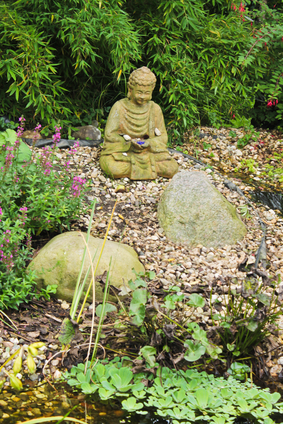Social interactions are good for your health
This isn’t the first time that I’ve written about the benefits of social interactions in terms of health. And it likely won’t be the last! In fact, data collected in roughly 53,000 Americans over a 36 year time period show that both personal and impersonal interactions, that is, visits with relatives, neighbors or friends or in bars (personal) or memberships in in organization, sports clubs, youth groups, etc (impersonal) can have a significant impact on health.
Strangely, during the time of the study (which is published in the March/April issue of the American Journal of Health Promotion), significant declines were seen in impersonal and certain types of personal interactions. People were volunteering less or spending less time in cause-related organizations. And, people spent less time visiting neighbors.
The middle-agers happened to be the group with the largest income levels, highest workforce participating and greatest full time working percentage. And while they had opportunity costs when it came to time and how they chose to spend it when they weren’t working, it appeared that devoting more time to friendships, especially close friendships, was important to health. So was the time spent in health/sports clubs.
The takeway? Having friends or other interpersonal interactions tended to be associated with a higher probability of being in very good or excellent health.
However, timing is everything and this information was collected before the economic downswing and the loss of millions of jobs, especially among mid-lifers. Still, it does offer up an important message:
The cost of time may be greater than one believes. Be sure that part of your time allotment is spent cultivating and spending time with friends. They are critical to mental wellbeing, staving off depression, increasing longevity and reducing stress.
Speaking of which….it’s
Be sure to reach out and touch someone in your inner or outer circles who you’ve not interacted with of late. Call a friend, drop a note, extend a helping hand. That time allotment might be the best you spend today.
Read MoreThe social ties that bind…life
[Henri Matisse, Dance II, Late Summer 1909]
Research has shown that social support networks are essential to our overall mood and well-being, especially as we age. Now, it appears that social support, i.e. relationships whether it comes from friends, partners or other family members, can actually prolong our lives.In fact, researchers who analyzed 148 studies in over 300,000 men and women say that people with strong social relationships are as much as 50% likelier to survive than individuals without them or whose relationships are poor. Moreover, having good social relationships may be as beneficial as quitting smoking, while bad relationships can more harmful than being obese or sedentary.
While these findings certainly don’t mean that poor habits and risky behavior can be wiped out by having strong relationships, they do imply that social support is critical to more than our mental health. Still, the researchers say that over the past 20 years, there has been a three-fold increase in the number of Americans who report having no confidant and that globally, people are actually becoming more isolated. This runs counter to the proposition that social networks á la the web foster stronger social connections. Although this may be true for the some individuals, it isn’t for others and the quality of these online relationships appear to have quite an impact on our health.
So, what is social support exactly?
Social support is actually multifaceted and highly individual. It deals with how we perceive the support we receive, be it emotional, informational, tangible or intangible (such as a sense of belonging), the size of our networks and how they are defined (e.g. marital or intimate relationship status, number of social contacts, degree of active engagement in activities or relationships, and whether or not we live or alone or with others) as well as an integration of the two. People who were able to successfully integrate the two were actually shown to have a 91% increased likelihood for surviving longer.
One of the most striking things about this report is the fact that the researchers believe that the estimates on the benefits of the social relationships in terms of having a longer life may be conservative. However, they do caution that many of the data they looked at did not account for the quality of the relationships, an important and risky variable.
The bottom line, it seems, is something that women have known all along: strong, quality friendships are critical to our emotional health and well-being. However, we’ve not been able to link that to lengthier survival…until now. As always, keep it real, go for quality not quantity and keep sowing those seeds. Who knew that the social ties that bind us are truly life?
Read MoreNewsflash: For better health, accentuate the positive!
Inflammation. It’s our bodies’ revenge in response to daily habits and exposure to stressors. Left unchecked, an increase in inflammatory markers in the bloodstream significantly increases the risk for chronic diseases and death. Increasingly, researchers are pointing to psychological distress — factors like hostility and depression — as playing a key role in inflammation. Yet, there is a silver lining to this story: positivity. In fact, Penn State researchers are reporting that they have found evidence supporting an association between mental wellbeing (e.g. positive social relationships, purpose in life and positive emotions) and lower levels of inflammation throughout the body.
Until now, most of the research in this area have relied on measures that don’t necessarily fully reflect emotional and stress in daily life. But these daily stressors are important and appear to affect physical functioning in the short term and over time, accumulate to wreak havoc on our health. Research has also fallen short when it comes to the benefits of minor positive events — called uplifts — that occur during daily; examples include dining with a friend, sharing a good laugh or taking a leisurely walk.
Yet, new study findings show that experiencing daily positive events at work, at home, within your network and via interactions can lower the levels of inflammatory markers, namely interleukin-6 (IL-6) and C-reactive protein. In women, these daily uplifts appear to also affect the levels of fibrinogen, a blood protein that contributes to clotting. After the researchers took potential factors that might skew the results into account, such as race and income, only IL-6 continued to be significantly and beneficially affected by these daily positive events.
Let’s look at IL-6 for a minute. In certain contexts like exercise or in the face of infection, IL-6 actually has anti-inflammatory properties. Yet, when it comes to psychological stress, IL-6 becomes pro-inflammatory, which is why finding ways to counteract its Dr. Jekyll/Mr. Hyde actions is so important.
Back to positive, daily events. The type that had the most impact were interpersonal positive events, particularly in women. I’ve written previously on the importance of friendships and social support as we grow older and these data help to bolster the evidence supporting this.
What’s lacking here is definitive cause and effect. But an association has been demonstrated and it’s never bad to step back, take stock and accentuate the positive on a daily basis. Not only does that strategy work to help our mental state but it may also help our bodies ward off disease.
Read More
Guyside: Don’t sell friendship short
You know how we have little routines that we rely on in conversations? Someone brings up air travel and you have your little shpiel about it. Well, one of mine has always been that women’s relationships are like cats interacting with each other: much sizing up and marking of territory. I’ve also said that men’s friendships get formed like dogs’ — we sniff each other’s butts, then we figure out if the person in question is someone we want to play with.

Male friendship can sometimes be discounted, even by the friends themselves.
It might make a marginally funny line, but I’ve come to believe it sells both men and women short in the friendship department.
I currently don’t really have a “best friend.” There are guys that I’m close with, that I’ve been with through good times and bad times, but not a single person I’d tell people, “oh, you know ?Steve? Yeah, he’s my best friend.”
A few years ago, I had someone I considered a best friend. He and I had begun as colleagues, and had immediately gravitated to each other. My partner and his wife also got along, and we found ourselves as a foursome often, but we also were “guy friends”.
The friendship ended for a number of reasons that probably don’t really matter in this context, and anyway, I don’t think it would be right to go into them. The best way I can say it that I ended it because I was no longer comfortable with being his friend.
That was a few years ago, and since that time we’ve exchanged a few words and seen each other at a few events. It’s led to some awkwardness from time to time, probably on several people’s parts — we still share a number of friends.
And on Sunday night, we found each other at a large surprise party celebrating one of those friends’ 80th birthday, and my ex-friend found a moment to tell me that he missed the friendship. I found myself uncharacteristically incoherent, blabbed out a few loosely connected words, and made myself scarce. It was a very awkward moment for me.
I suspect that were I to reach out to reconnect, it might well be received well by my ex-friend. But even if I did, it might not work out. During the years of our ‘estrangement’, things have changed for me. As I said to someone this week, I feel as if the me he knew, who was his friend, isn’t there anymore. So even if I was willing to remake the friendship, it wouldn’t necessarily be the same friendship.
Another part of me thought about all this and wanted to dismiss the thought process itself as a bit much of a muchness, as too much rumination about a friendship. But I don’t agree with that. And I think that while it can be easy for men to think of our friendships as activity-based or transactional (hey, let’s go running, let’s go out for beers, let’s hit a concert), there’s something more to men’s friendships.
It’s easy to focus on our primary relationship — our wife, our partner, whatever the label is. I think it’s common for men to sometimes forget that there are benefits to ourselves and to the people we care about when we build stronger social bonds with other people, whether we have a best friend or a number of friends.
When it comes to emotional resilience, to mutual support, and to good psychological health, friendship is definitely NOT where you want to put all your eggs in one basket.
I miss what I had. But you can’t go back — or at least I can’t; better to build relationships that can be ones of mutual support and positive regard.
Photo: CC licenced by Flickr user Francesco Rachello
Read MoreHelp!
If you are as independent as I am, asking for help might be alien to you. Personally, I am getting better at it. But I still have the inclination to try to do something first on my own rather than rely on someone else to do for me, even if it may be detrimental.
I am having surgery today. I’ve been in significant discomfort for weeks now and that discomfort has been increasing daily. And I was going to drive myself to the procedure until my friends stepped in and took over. Don’t you think that I would realize how silly that idea was?
So, while I spend today contemplating the ‘thank goodness, folks who love me stepped in,” I challenge you to ask yourselves the following question:
When was the last time you asked for help? Better yet, how easily do you ask for and receive help?
Reading Karen Rosenthal Hilsberg’s “Lessons in Living” and her struggle to make sense of a life unraveled as her husband dies, I can’t help but reflect on a close friend who was ill several years ago. Despite a ‘take no prisoners’ attitude, he had trouble acknowledging the seriousness of his condition and even more trouble asking for support. Quite honestly, he doesn’t do too well in that department and neither do I. However, like him, I readily offer assistance to those I love and care about, whenever I can.
So, why the divide between offering and taking?
Hilsberg writes that “what I learned during this intense time of life was profound. I learned to ask for help from others.” Utilizing the mindfulness practice of the Zen Master, Buddhist monk and scholar Thich Nhat Hanh and the Buddhist Master Thich Phuoc Tinh, she says that she discovered that asking for help really wasn’t much different than providing it, that the helper and ‘helpee’ were intertwined, unable to exist without the other. By allowing assistance, she was able to provide others who cared about her and her family an opportunity to “be of service and to practice generosity” and in doing so, make a shift away trying to do everything on her own. Most importantly, by reflecting on how much she personally enjoyed being of service when loved ones needed her, she was able to accept how appropriate and okay it was to actually ask for help from others — to allow them to “do” as much as she did. The result? Her “wellbeing improved as [she] felt [her] burden shared by many hands.”
As caretakers, many women often do not adapt well to being on the “receiving end.” And yet, most of us are aware of the importance of social ties, friendships and support to our health and wellbeing, particularly as we age. So why do we find it so difficult to ask for and receive help? How do we acknowledge that be cared for does not equate to losing power or control but actually improves outlook, wellbeing, and ability to deal with any challenges that we might be facing, that allowing others to “do” empowers and does not ‘de-power?’ Is it fear of refusal? Or fear of letting go?
Mastering the art of asking for help is difficult. However, it behooves us to do so, not only for our wellbeing but for the wellbeing of those around us who wish to help.
My friend deserved the kind of care that he has provided to others in his life for most of his life.
Guess what?
So do I.
And so do you.









